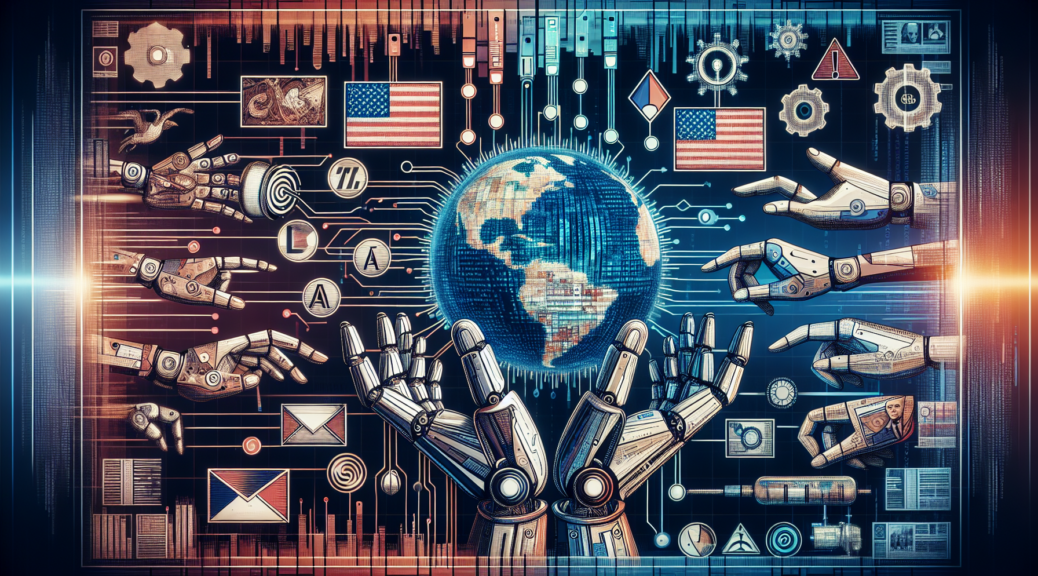
Understanding the Role of AI Misinformation in the Ongoing Israel-Iran Conflict
Understanding the Role of AI Misinformation in the Ongoing Israel-Iran Conflict
The intricate web of geopolitics and conflicts often becomes even more convoluted with the infusion of misinformation, and artificial intelligence (AI) has become a prolific vehicle for this within the context of the Israel-Iran conflict. In recent years, the deployment of AI technology has exponentially increased the velocity and volume of misinformation, often referred to as “AI slop,” further complicating diplomacy and ethical journalism. This blog delves into the specifics of how AI-driven misinformation impacts the ongoing tensions between Israel and Iran.
The Rise of AI in Information Warfare
Artificial Intelligence’s powerful algorithms and deep learning capabilities are transforming the landscape of information dissemination, making it a double-edged sword in the digital age. While AI offers the potential for tremendous good, from medical advancements to innovative solutions in commerce, its misuse has emerged as a formidable challenge in conflict zones.
The Israel-Iran conflict is a prominent example where AI is increasingly employed for strategic misinformation. Here are a few facets of how AI is leveraged in this geopolitical struggle:
- **Deepfake Videos**: These AI-generated synthetic media can manipulate videos or images, creating highly realistic but entirely fake events or speeches that can incite unrest or spread false narratives.
- **Bots and Automated Social Media Accounts**: AI-driven bots can inundate social platforms with disinformation, amplifying polarizing content to sway public opinion or disrupt diplomatic conversations.
- **Algorithmic Bias**: AI systems can unintentionally perpetuate or even escalate existing biases or stereotypes, influencing how information about the Israel-Iran conflict is presented and perceived globally.
Impact on Israel-Iran Relations
The misuse of AI exacerbates the already fragile landscape of Israel-Iran relations. Both countries are embroiled in a delicate balance of power where diplomacy is often manipulated by parties interested in perpetuating conflict for strategic gains. The AI-driven misinformation machinery adds an extra layer of complexity:
- **Escalation of Tensions**: Misinformation can quickly lead to heightened tensions between the two nations, as rapid spread of controversial or inflammatory content can provoke hasty political reactions.
- **Public Perception**: In both countries, citizens are prone to believe AI-generated content that fits their bias, further deepening divides within and between societies.
- **Diplomatic Challenges**: International mediators and diplomatic entities struggle to negotiate peace when AI-driven disinformation continuously challenges the authenticity of diplomatic dialogue.
Misinformation Mechanisms Driven by AI
The mechanisms for spreading misinformation using AI are varied and sophisticated. Below are some critical ways AI spreads ‘slop’ in the Israel-Iran context:
- Sentiment Analysis Manipulation: AI-driven sentiment analysis can categorize content to generate emotionally charged narratives, selectively promoting divisions and silencing reconciliation efforts.
- AI-Powered Content Generation: Automated systems can churn out large volumes of content in multiple languages to confuse and distract from verified news narratives.
- Targeted Campaigns Using Machine Learning: Machine learning algorithms can identify and target individuals or groups with personalized misinformation, increasing the likelihood of acceptance and spread.
Countermeasures and Future Recommendations
Addressing the spread of AI-generated misinformation requires a multifaceted approach involving technology, policy, and society:
- Enhancing AI Literacy: Educating the public about AI technology and its potential for misuse can help users critically evaluate the information they consume.
- Developing Robust AI Detection Systems: Researchers and tech companies are working on creating sophisticated systems to detect deepfakes and identify bot-driven campaigns.
- Global Cooperation: To effectively combat AI misinformation, international bodies must work together to create and enforce norms, guiding principles, and regulations that transcend national borders.
Involving Tech Companies is crucial in this battle, as they have the means to create algorithms that can reduce the spread of false information. Moreover, international cooperation can lead to formal agreements on AI use in armed and political confrontations, much like agreements that exist for chemical or nuclear weapons.
Conclusion
While AI technology can significantly benefit humanity, its dark side is alarmingly potent in areas of political and military conflict. The Israel-Iran conflict is a stark reminder of the potential consequences when AI-generated misinformation takes root, blurring the line between reality and fabrication. Achieving balance will require a concerted effort on an international scale to develop ethical AI practices, enhance transparency, and educate societies on the responsible consumption and sharing of information.
As AI continues to evolve, so too must our strategies to protect against its misuse. In the information theater of modern warfare, understanding and mitigating AI slop is as critical as any military strategic advantage.



